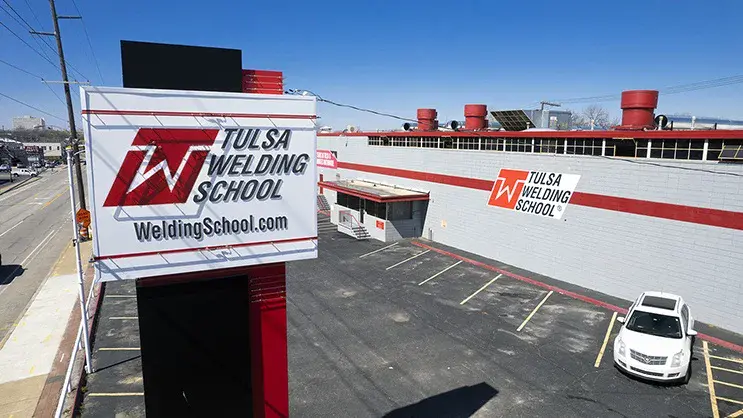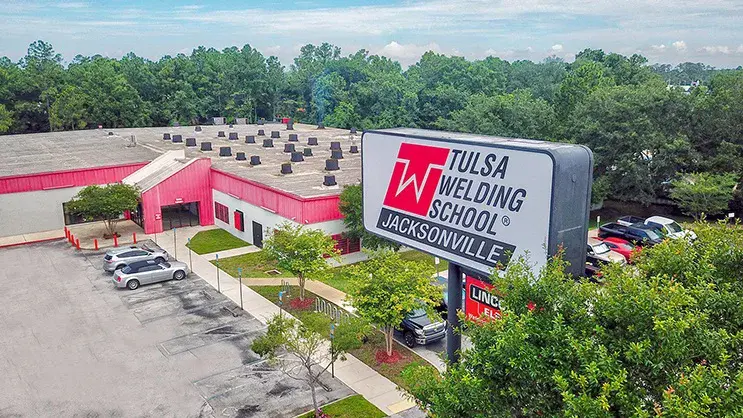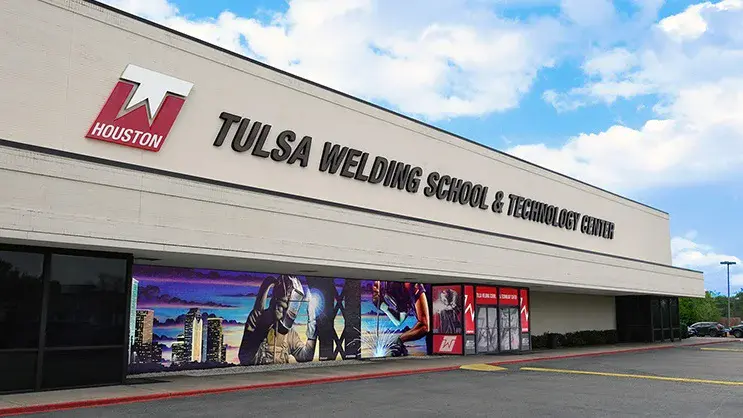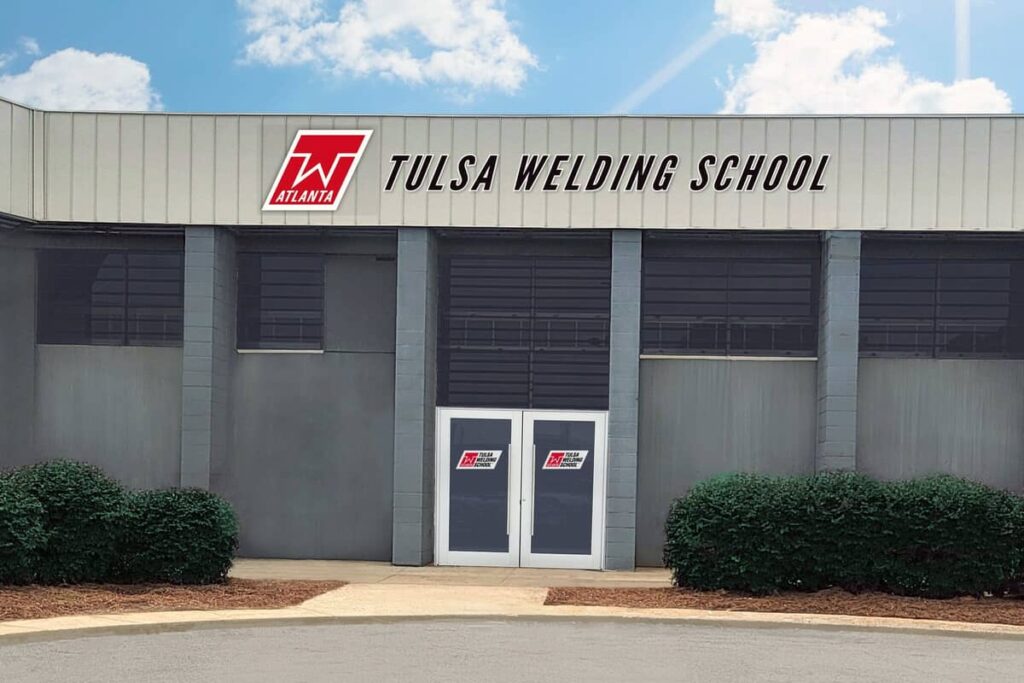TWS is a Great Training Option for Everyone
Learn more about how we can prepare you to advance your career.
In the coming years, the United States will see a significant number of skilled welders reach retirement age, leaving many industries in need of highly trained professionals to replace them.
The United States will need 400,000 welders to fill jobs by 2025, according to the American Welding Society.1 This means opportunities for newly trained welders to enter the job market.
What Is Welding?
A weld is a permanent bond formed between two or more metal parts. A proper weld uses an exact and predetermined degree of heat to properly melt and fuse a particular type of metal.
Have You Considered a Career in the Skilled Trades?
Fill out the form to recieve a no obligation info packet.
An accomplished welder is one who knows how to use different welding techniques for different purposes, or who is highly specialized in one type of welding. Experienced welders are sought after by many manufacturing industries, from aerospace to the Navy.
For example, recent innovations in the automotive industry have opened up a demand for trained welders in the United States.
What is the advantage to welding? Structures that are welded together properly are stronger, lighter and cheaper to manufacture than metal structures that are bolted or riveted together.
What Does a Welder Do?
- Welders understand blueprints and calculate dimensions.
- Welders inspect materials and structures for quality of welds.
- High-performing welders know it is important to keep their machinery and welding equipment in excellent working condition.
- Welders are able to use hand-held metal joining tools to permanently join parts, as well as fill holes, seams and indentations.
- Welders need to understand metallurgy, some specialized math like trigonometry and some basic engineering.
How to Become a Welder
To become a certified welder, start by investigating welding schools to determine which program to enroll in. Tulsa Welding School offers a variety of different vocational training programs to choose from:
- Professional Welder
- Professional Welder with Pipefitting
- Associate of Occupational Studies in Welding Technology
- Welding Specialist
- Welding Specialist with Pipefitting
These welding programs offer hands-on technical training with close guidance from experienced instructors. Students who put in the time and work not just to complete their training, but also to grasp the fundamentals of welding, will have a good shot at finding welding job opportunities.
For instance, the Professional Welder Program can lead to a career in:
- Structural welding
- Pipe welding
- Aircraft welding
- Thin alloy welding
- Pipeline welding
Where Do Welders Work?
Different types of welding jobs are used during all phases of industrial operations, so the need for welders is steady across various industries.
Welding career paths may include working for contracting and construction companies, building permanent and temporary infrastructures, repairing military equipment or working various pipeline jobs. As of 2018 Over Sixty percent of the 424,700 welding jobs in the United States were in the manufacturing industry.2
Welding jobs in Texas are currently the most plentiful.3 California has the second highest number of available welder jobs in the U.S, followed by Ohio, Pennsylvania, and Wisconsin.3 The state with the highest concentration of welding jobs is South Dakota.3
Some careers in welding can be possibly exciting for the person who wants to travel or work in non-traditional environments.
For example, welders who specialize in metal fabrication may find themselves traveling with NASCAR racing pit crews to repair and construct customized racing equipment. Pipe welding jobs may take welders to distant regions where pipeline systems need to be installed or repaired. They may live in remote areas of Alaska, Canada or the Sahara Desert during the length of the project.
Welders can be hired to live on working cruise ships, where they travel the world to replace pipe systems, make reparations and conduct preventative maintenance. Shipyards hire welders as independent contractors to assist in building everything from research vessels to aircraft carriers.
Welding Careers
Is welding a good career? Welding offers many career advantages for people who like working with their hands, who are mechanically inclined and who enjoy contributing their skills to the tangible creation of a building, project or structure.
Types of Welding Career Opportunities
Many industries need career welders, including the fields of:
- Inspection
- Engineering
- Robotics
- Sales
- Project management
- Education
How much do welders make?
Entry-level positions offer annual wages beginning at $28,560.3 The median job pay for welders in the country is $41,380,3 and the welder salary in the top 90 percent is $63,740.3*
The pay can be higher for traveling welding jobs and for welding jobs that take place in areas considered hazardous, such as on an oil-rig. Industrial pipe welders can make salaries ranging from $50,000 to $185,000 per year while traveling.4 Military support welders are typically paid $160,000.4*
The Future of Welding Jobs
In addition to traditional welding, industries that employ high-tech, automated equipment to bond metals need professional welders to oversee and manage production.
Robotics and welding that combine high-powered lasers and electron beams are increasingly common in some manufacturing processes. Between 20 to 25 percent of commercial welding in the United States is automated, and automated welding is expected to grow by 20% over the next few years.5
The future of welding is an exciting and unmapped territory for those willing to adapt to emerging technologies.
Considering a career in welding? Contact us to learn more about our welding training programs in Houston, Texas, Tulsa, Oklahoma, and Jacksonville, Florida.
This content was updated on: September 14, 2019
1 https://www.aws.org/foundation/page/workforce-development
2 https://www.bls.gov/ooh/production/welders-cutters-solderers-and-brazers.htm#tab-3
3 https://www.bls.gov/oes/current/oes514121.htm
4 https://weldingcareernow.com/articles/3-highest-paid-welding-jobs
5 https://www.weld-ed.org/NR/rdonlyres/F75C7675-0F14-4492-9969-0F3C63F02AFD/6348/InDemand_Book.pdf
*Average starting salaries for graduates of the Professional Welding program is $33,945 for TWS Tulsa, $32,890 for TWS Jacksonville and the Welding Specialist program is $33,633 for TWSTC in Houston during the 12 month period of 7/1/17 to 6/30/18.
This blog has been labeled as archived as it may no longer contain the most up-to-date data. For a list of all current blog posts, please visit our blog homepage at https://www.tws.edu/blog/









